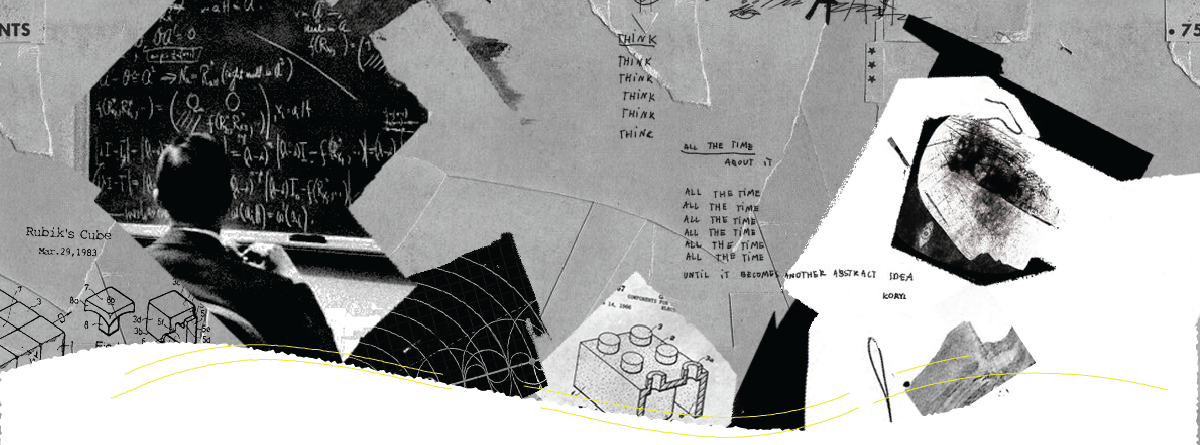Blog
What is a Teaming Culture?
#03
What is a Teaming Culture?
How to build a culture of trust and accountability

There's no "I" in team. There are, in fact, several.
The words “teamwork,” “team player,” and “team building” are so overused and ingrained in workplace culture they’re more effective for producing eye rolls than a sense of partnership or togetherness. Still if something is so commonplace, why is it so difficult to achieve? Why does it feel like so many workplaces preach teamwork and togetherness yet contain cultures rife with squabbling and discontent?
Part of this is human nature. Personal conflict and its various forms are nearly impossible to avoid completely. But we’d argue there is another reason.
Consider the cliché, “There’s no ‘I’ in team.” A pretty useless and uninspiring motto. We’re going to go out on a limb and guess you feel similarly. Who wants their individuality erased? No one. At least no self-assured thinking person. (And since, dear reader, you are here on our blog, we know you are one of those people.)
A truly elite team is not made up of mindless automatons working as cogs in a machine. It’s made up of free-thinking individuals who have found a way to complement and synchronize their talents.
Of course, there is an “I” in team. Several in fact. And they all have their own views, feelings, and agendas.
The process of building a team is not erasing these and replacing them with what’s needed to get the job done. The process is uncovering the potential energy of a created team—a group of talented individuals—and utilizing that energy in the most impactful manner.
The latter of these two processes is what we refer to as “teaming.” As a business leader, you want to create a teaming culture in your workplace.

What Is a Teaming Culture?
A culture that cares for and about the individual as a way to progress toward a common goal. Characteristics of a teaming culture include:
Understanding – When someone fails or makes a mistake the first time, it is met with understanding. Allow team members to try, fall, and learn from failure without judgment.
Workshopping – Practice showing your work to others and be open to constructive criticism. Not only does workshopping improve solutions through constructive feedback and the exchange of ideas, it builds a sense of togetherness.
Share Clear Expectations –This is fairly straightforward, but expectations cannot be met if they are not clearly articulated. In addition, moving the goal posts mid-project is a quick way to turn task conflict into personal conflict. Be open and honest about expectations from other members and alert them ASAP if expectations change in any way.
Share Knowledge and Success Across the Team – Externally, accept success as a team. Use “we” and “us” when speaking with clients and/or vendors. Remember, the client does not see individual members. If one of you fails, you all fail. If one of you succeeds, you all succeed.
Individual acknowledgment and accolades should mostly be an internal affair. Occasionally complimenting a team member’s work to a client is great for individual morale. But make sure that team member understands the work was produced as part of a collective effort.

Do team members need to get along?
Yes and no. More importantly, they need to respect one another. They don’t necessarily need to agree or share the same world view. In fact, conflict often produces stellar work. You’ve heard the whole “iron sharpens iron” cliché, right? It’s kind of like that. Where a teaming culture falls apart is when the individuality of the members is disrespected or erased. More simply, when the conflict becomes personal rather than task-related, your culture begins to fall apart.
Task conflict is an argument about how to achieve a goal or complete a task. It’s inevitable and arguably essential to any project. Personal conflicts or attacks on an individual’s personality, work style, or mannerisms leads to breakdowns, dysfunction, and HR problems.
A good practice here is to “Solve the Problem, Not Each Other.” In other words, personal conflict between team members is immediately addressed. Task conflict is met with constructive feedback and positive reinforcement.
It's Tougher Than It Sounds...
Building a teaming culture may sound like a simple, even obvious, practice, but we assure you it is not. It requires continuous maintenance. It will, however, save you so much energy by avoiding personal conflicts and HR nightmares in the workplace. And all that energy can be channeled into decisive results.
To help make sure your business is practicing a teaming culture, we created a handy poster that summarizes the above. Download it today to begin (or continue!) building a teaming culture free of bullshit.

